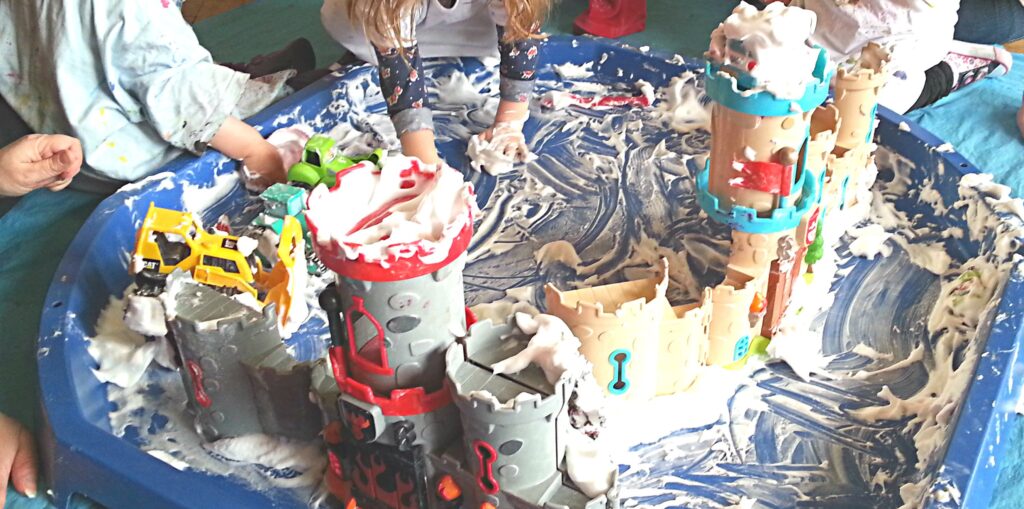The early years foundation stage (EYFS) sets standards for the learning, development, and care of a child from birth to 5 years old.
All schools and Ofsted-registered early years providers must follow the EYFS, including childminders, preschools, nurseries and school reception classes.
Areas of Learning
Your child will mostly be taught through games and play.
The areas of learning are:
- communication and language
- physical development
- personal, social and emotional development
- literacy
- mathematics
- understanding the world
- expressive arts and design
Free Education for 2 Year Olds
Together for Twos – did you know that your two-year-old could be entitled to 15 hours of free early learning a week?
This could be with a registered childminder or a Children’s Centre, crèche, local nursery or preschool playgroup. All of these early learning places have qualified staff who are trained to look after children. They are inspected by Ofsted and have been graded by Ofsted as providing good or outstanding learning experiences for children.
Research has shown that good quality early learning and care can expand children’s development, especially in communication and language, developing their physical skills and socialising with other children and making friends.
Taking a Together for Twos place also helps families, as you can have time for yourself and take advantage of the activities and courses run at your local Children’s Centre, for example, courses such as preparing to go back to work, finding out more about child development and first aid.
For those living in Royal Greenwich click the link below to set up your account and access free learning
2-Year-Old Free Early Learning (servelec-synergy.com)
For those living outside of Greenwich, contact your nearest children’s centre.
Free Education for 3 – 4 Year Olds
Free early learning places are available for all three and four-year-olds across Royal Greenwich at:
- private and independent nurseries
- pre-school playgroups
- children’s centres, nursery schools or nursery classes of primary schools
- some registered child minders who have been specially accredited.
Places are flexible and are available for 15 hours a week, 38 weeks a year. Some working families may be eligible for 30 hours a week.
Applying for a place in mainstream education.
You must apply for a primary school place a year before your child can start school.
Applications open in September and close on 15 January. Your child will be 3 or have just turned 4 when you apply. You’ll need to apply then even if you want your child to start part-way through the year.
Early Years Foundation Stage
Going to nursery is a very exciting you will be placed with other children the same age as you and get to explore a whole new space. There will be a lot of adults there to help with different activities and best of all you will get to do a lot of learning through play. This allows you to learn at your own speed. You will take part in a lot of messy play which will help you to build fine motor control, problem-solving skills, foundational math and science concepts, language and vocabulary, social-emotional skills, and so much more!







What to expect when you go to school
The first year at school is spent in reception class which is still part of the Early Years Foundation Stage. You will love reception class as there are lots of activities both inside and outside the classroom.







